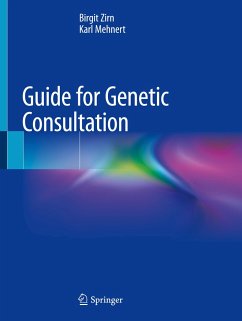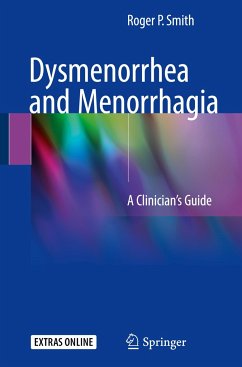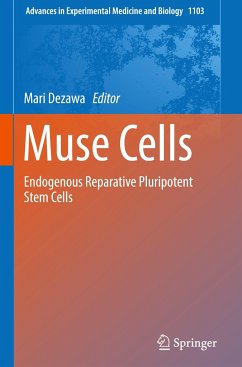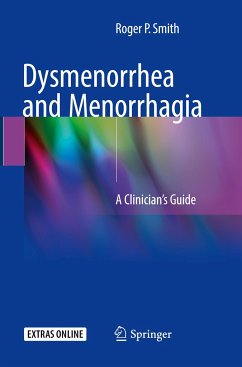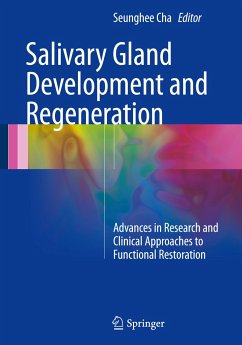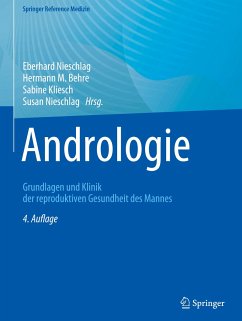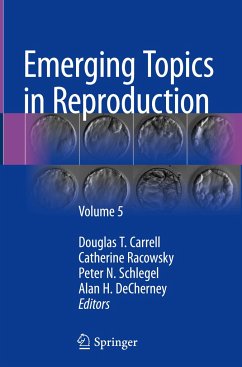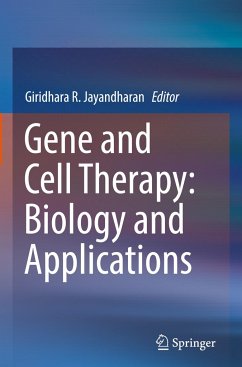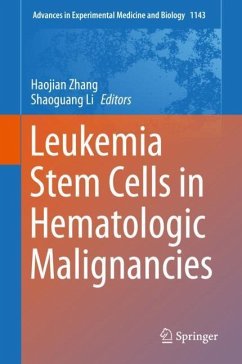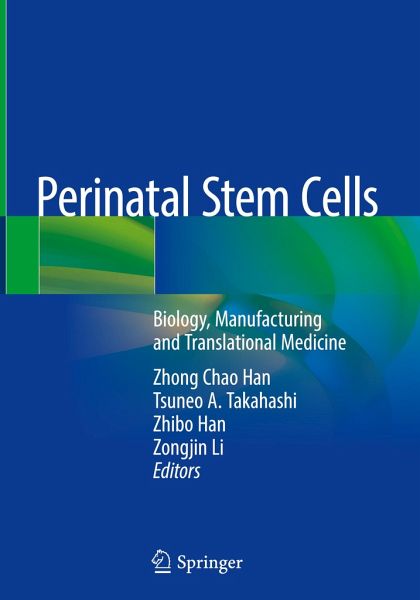
Perinatal Stem Cells
Biology, Manufacturing and Translational Medicine
Herausgegeben: Han, Zhong Chao; Takahashi, Tsuneo A.; Han, Zhibo; Li, Zongjin

PAYBACK Punkte
38 °P sammeln!
This book provides a comprehensive introduction to various types of perinatal stem cells. Given their unique regenerative abilities, stem cells offer a promising avenue in the treatment of degenerative diseases or injury.Currently, the limitations of postnatal cell sources and expanding efficiency may limit autologous stem cell therapies. Although embryonic stem cells (ESCs) and induced pluripotent stem cells (iPSCs) can be cultured indefinitely ex vivo, and can differentiate into three germ layers, ethical issues, the teratoma formation of ESCs and oncogenic risk of iPSCs are major obstacles ...
This book provides a comprehensive introduction to various types of perinatal stem cells. Given their unique regenerative abilities, stem cells offer a promising avenue in the treatment of degenerative diseases or injury.
Currently, the limitations of postnatal cell sources and expanding efficiency may limit autologous stem cell therapies. Although embryonic stem cells (ESCs) and induced pluripotent stem cells (iPSCs) can be cultured indefinitely ex vivo, and can differentiate into three germ layers, ethical issues, the teratoma formation of ESCs and oncogenic risk of iPSCs are major obstacles to their clinical application. More recently, perinatal stem cells have been isolated from the umbilical cord, Wharton's Jelly, placenta, amniotic membrane and amniotic fluid, which are normally discarded as medical waste. This book, after describing perinatal stem cells in detail, introduces readers to the various types of perinatal stem cells, addressing their characterization,banking, quality control and stability. Importantly, it also reviews the clinical applications of perinatal stem cells to therapy of diseases. Accordingly, it offers a valuable resource for clinicians, researchers and graduate students alike.
Currently, the limitations of postnatal cell sources and expanding efficiency may limit autologous stem cell therapies. Although embryonic stem cells (ESCs) and induced pluripotent stem cells (iPSCs) can be cultured indefinitely ex vivo, and can differentiate into three germ layers, ethical issues, the teratoma formation of ESCs and oncogenic risk of iPSCs are major obstacles to their clinical application. More recently, perinatal stem cells have been isolated from the umbilical cord, Wharton's Jelly, placenta, amniotic membrane and amniotic fluid, which are normally discarded as medical waste. This book, after describing perinatal stem cells in detail, introduces readers to the various types of perinatal stem cells, addressing their characterization,banking, quality control and stability. Importantly, it also reviews the clinical applications of perinatal stem cells to therapy of diseases. Accordingly, it offers a valuable resource for clinicians, researchers and graduate students alike.



